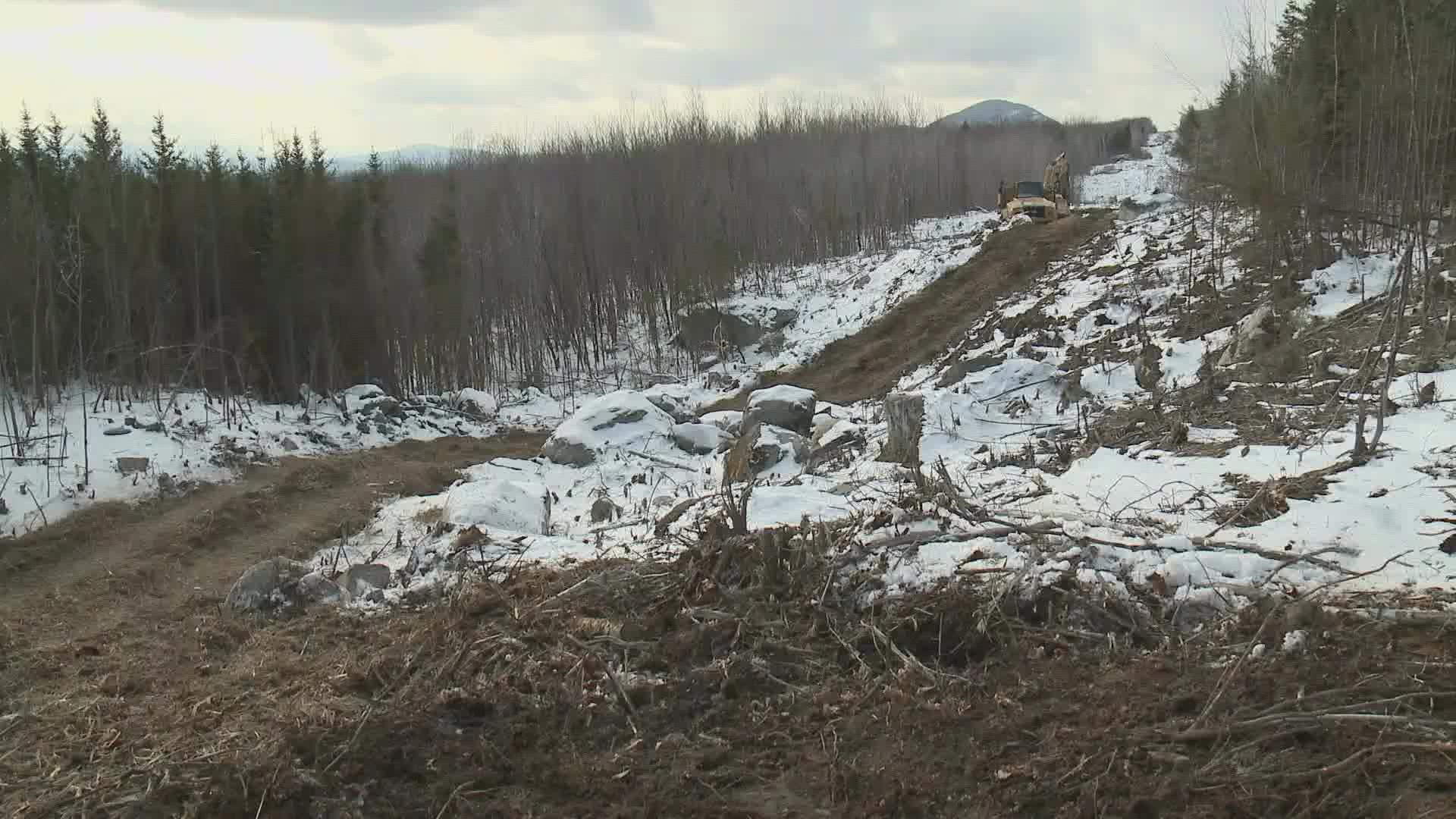WEST FORKS, Maine — The big excavator swung an overloaded bucket, dumping its load of shredded wood into the body of a big, off-road dump truck. The truck then roared off, up and down steep slopes, shifting the mammoth pile of wood grindings to be spread over the ground of the CMP corridor.
The 53-mile, highly controversial, Section 1 of the CMP corridor — officially the NECEC — is nearly all cleared of trees. Company officials said only two miles are yet to be cut, and half of that is the stretch of state-owned public land that is the focus of an ongoing court case.
Avangrid and NECEC Transmission stopped construction on the entire CMP corridor on Nov. 19, following a request to do so from Gov. Janet Mills.
Then, four days later, the Maine Department of Environmental Protection suspended the license for the project. That action prevents construction from restarting at least until the Maine Business Court decides the company’s challenge of a law passed by voters on Nov. 2. That law prohibits the CMP corridor from being built.
Part of the DEP order requires the company to stabilize the ground in the corridor that has been chewed up by heavy equipment. To prevent erosion, the company is spreading the multiple piles of wood grindings along much of the corridor.
Areas without easy access to the shredded wood are being covered with hay.
“I think in a couple of weeks we will have it,” Jim Boyle, environmental compliance coordinator for the NECEC project, said.
Boyle said it's all being done to ensure the corridor area recovers from the previous six months of heavy logging work.
“The commissioner's order, as I read the order, [she] wants these spread so it's not here during growing season. Because if the piles are there, it will prevent vegetation from growing,” he said.
Vegetation will grow back in the corridor, the company said. But the big question is whether the large electric transmission line will sprout there, too.
The future of the line is in doubt from both the referendum law and the earlier court decision that declared the NECEC did not have a valid permit to cross 9/10 of a mile of public land.
The DEP was also asked to suspend the project license because of the public land ruling, and the agency delayed a decision on that issue until the constitutionality question is resolved. Both sides of the issue have said the court process and appeals could mean no final decisions for six months or more.
That’s one of several reasons the Natural Resources Council of Maine, a prime opponent of the corridor, has asked the U.S. Department of Energy and the Army Corps of Engineers to also suspend their permits for the project.
“We think the appropriate thing is for the DEP and the federal agencies to suspend this permit until, or unless, CMP receives full clearance from the courts, which could be six months,” Pete Didisheim, with the NRCM, said.
The stabilization work currently being done by the NECEC could be wrapped up at about the same time as the court hearing on the temporary injunction.
At that point, the corridor will likely remain silent and snow-covered until the legal process is settled.
More NEWS CENTER Maine stories.

